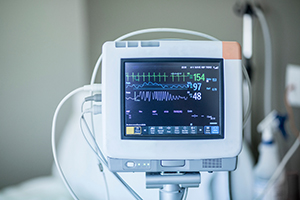February 2023 News Roundup
This month features AI for cardiac arrest, ear-pleasing hospital sounds, antioxidants in donor hearts, and more.

Every month, Section Editor L.A. McKeown curates a roundup of recent news tidbits from journals and medical meetings around the globe.
A new AI-based decision support tool can help predict prognosis after cardiac arrest based on comparisons with similar cases. The SCARS-1 tool, developed in Sweden and available free as an online app, has a sensitivity of 95% and a specificity of 89%. The model can reliably and rapidly estimate likelihood of survival using a handful of readily available patient variables such as return of spontaneous circulation (ROSC), consciousness, use of adrenaline, initial presentation, and age, investigators write in eBioMedicine.
Most patients’ descriptions of how they feel at the time of acute MI match well with the symptoms they recollect 24 hours later, with about 80% reporting chest pain as their primary sensation. However, some patients later recall additional sensations like fatigue, fear, palpitations, and changes in body temperature. While rarely expressed at first medical contact, these symptoms give broader insight into the MI experience, a study of Swedish patients published in the Journal of Cardiovascular Nursing finds.
 Working around medical equipment all day brings exposure to a cacophony of beeps and alarms, but new research suggests that a switch to more pleasant tones might be a needed workplace improvement. As reported in The British Journal of Anesthesia, study volunteers found musical tones less annoying and monotonous than standard beeps and alarms, suggesting they may be more effective and less likely to be ignored in certain situations.
Working around medical equipment all day brings exposure to a cacophony of beeps and alarms, but new research suggests that a switch to more pleasant tones might be a needed workplace improvement. As reported in The British Journal of Anesthesia, study volunteers found musical tones less annoying and monotonous than standard beeps and alarms, suggesting they may be more effective and less likely to be ignored in certain situations.
A small case series suggests that balloon angioplasty for moderate-to-severe pulmonary hypertension is safe in an outpatient setting. A team from Michigan reports on the implementation of their novel protocol in JSCAI.
 Amid widespread agreement about the importance of multidisciplinary heart teams in CV care, best practices for the operation of these teams have yet to be defined. A review in JACC: Advances from an expert team of diverse practitioner types describes basic tenets for successful teams, and proposes ideas for tackling the challenges facing them now and in the future.
Amid widespread agreement about the importance of multidisciplinary heart teams in CV care, best practices for the operation of these teams have yet to be defined. A review in JACC: Advances from an expert team of diverse practitioner types describes basic tenets for successful teams, and proposes ideas for tackling the challenges facing them now and in the future.
Patients who have had a stroke may be most mentally alert in the afternoon and early evening, which could have implications for their future care plans, including rehabilitation, a study in the Journal of Cerebral Flow & Metabolism suggests. In the small study of patients from Brazil, cerebral blood flow regulation was poorer in the morning and at night compared with the period from 2 PM to 7 PM. The results were similar across age, sex, stroke type and severity, and presence of other CV conditions.
Boosting the production of antioxidants and anti-inflammatory proteins in donor hearts while they are still preserved on ice may be the key to buying more time for the organs to be transported to recipients, investigators say in a study published in Science Translational Medicine. Valproic acid was used to increase expression of an enzyme immune response gene after preservation of the heart, leading to less inflammation, better cellular survival, and increased chance the heart would survive transplant.
 Among men admitted to a hospital with abdominal aortic aneurysm (AAA), those living in socioeconomically deprived areas are more likely to die without undergoing an endovascular or surgical repair than men from higher-income areas, according to a study in the British Journal of Surgery. Additionally, even when repair of any type was performed, mortality rates were higher in those from more deprived areas.
Among men admitted to a hospital with abdominal aortic aneurysm (AAA), those living in socioeconomically deprived areas are more likely to die without undergoing an endovascular or surgical repair than men from higher-income areas, according to a study in the British Journal of Surgery. Additionally, even when repair of any type was performed, mortality rates were higher in those from more deprived areas.
More than 50% of all patients who have heart failure with preserved ejection fraction (HFpEF) are taking five or more CV medications. Compared with those taking fewer meds, those at the highest levels of polypharmacy have greater risk of all-cause mortality and HF rehospitalization, researchers say in the International Journal of Cardiology. They suggest cutting back on diuretics.
L.A. McKeown is a Senior Medical Journalist for TCTMD, the Section Editor of CV Team Forum, and Senior Medical…
Read Full Bio



Comments